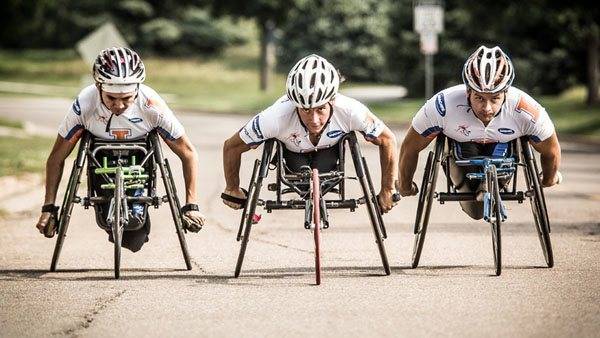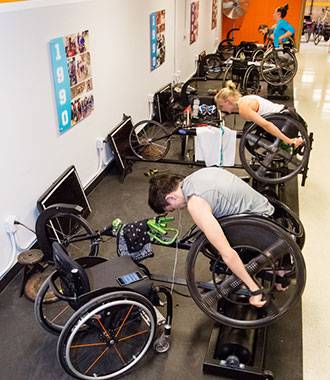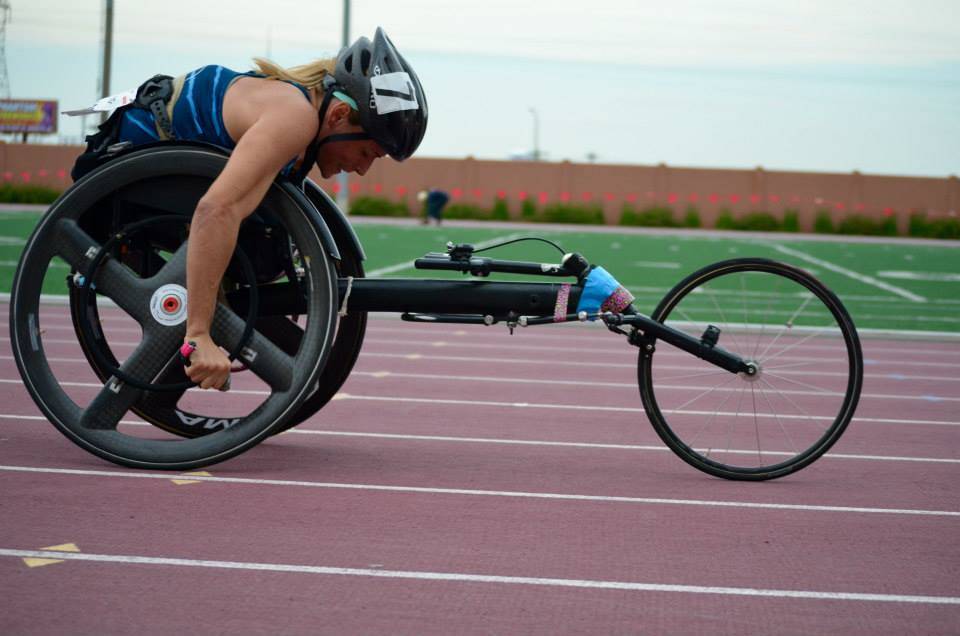U of I is host to a plethora of sports and teams with a wide variety of talents, strengths, and passions. Of these many teams dedicated to athletic greatness include the wheelchair track team. Over the years, these Illini athletes have won many of the world’s most prestigious races, including the London Marathon, NY City Marathon, Chicago Marathon and Paris Marathon. Head coach Adam Bleakney answered a few questions about the team’s history, successes, and future hopes for the upcoming Olympics.
SP: What is your background in coaching?
Adam Bleakney: I’ve been the head coach for the U of I team since 2005. I raced as a student-athlete at U of I from 1997-2002.
SP: Could you give a little history on wheelchair track at UIUC and beyond?
Bleakney: From parking lots in the 60s to the proliferation of synthetic tracks in the 70s, the University of Illinois Wheelchair Track and Field team has competed among the world’s best. At the first Paralympic Games, held in 1960 in Rome, Illini Ron Stein won 3 gold medals. Four years later at the Tokyo Paralympics, he added 5 gold medals to his total, making his gold medal tally of 8 the most gold medals ever won by an Illini. Illini Sharon Hedrick became the first female wheelchair competitor in the Boston Marathon in 1977, the front end of an illustrious career in which she won 2 gold medals in Olympic competition. Sharon is widely recognized as the best wheelchair athlete of all time. In the 1981, Marty Morse took on the head coaching responsibilities for the team, building a dynasty of success through the 80s and 90s. His athletes won 52 Paralympic medals and 6 Olympic medals. Notably, Illini Jean Driscoll won a record-setting 8 Boston Marathon wins. Marty was instrumental in creating best practices for training the wheelchair athlete, many of which are still used across the globe. In 2005, alum Adam Bleakney was named head coach. In every major Paralympic track competition since 2006 (World Championships and Paralympic Games), Illinois athletes have won more the 30 percent of all medals won by the U.S. team. In Beijing, 8 U of I athletes competed on the U.S. team. 5 of those 8 athletes were medalists. Those 5 won 13 of the 28 medals won by U.S. track and field (46 percent). In London, 12 U of I athletes competed on the U.S. team. 4 of those 12 athletes were medalists. Those 4 won 11 of the 28 medals won by U.S. track and field (39 percent). U of I athletes have won every major marathon in the world, including New York, Boston, London, and Chicago. There are currently 27 athletes on the team. This team currently holds 9 world records. In recognition of the program’s many decades of success, UIUC was named the U.S. Paralympic Training Site for Wheelchair Track in 2014.

SP: How do you recruit for the team?
Bleakney: Primarily through existing relationships with various community-level and grassroots organizations throughout the U.S. We do a lot of outreach, including clinics and camps, which allows me and my staff to connect with coaches and athletes.
SP: What is the training and meet schedule like?
Bleakney: The athletes train 6 days a week, anywhere from 8 to 12 sessions and 10-15 hours a week. Of course, the exact amount varies depending on the time of year and the competition cycle. At maximum, we’ll do up to around 200 miles a week of high quality effort. We compete across the country and the world from January through November. Thus far this year, we’ve had athletes compete in Sydney, Tokyo, London, New York and Boston, to name a few.
 SP: What are audience turnouts like at meets? What is the atmosphere like?
SP: What are audience turnouts like at meets? What is the atmosphere like?
Bleakney: In the major road races there’s a huge turnout of fans, of course. At events like the Paralympic Games, most often the stadium is at capacity. In London, my athletes were racing in front a crowds in excess of 60,000.
SP: What’s the team’s greatest accomplishment this season?
Bleakney: The team has won titles at the Chicago, NY City, Boston and London Marathons in the women’s division and had several top 5 finishes in those events on the men’s side. We had 8 team members on the U.S. team competing at the Para Pan American Games in August and they won 6 gold medals and 1 silver medal.
We had 10 team members on the U.S. team competing at the World Championships in October and won 2 gold medals and 3 bronze medals.
SP: What has been the team’s greatest challenge this season?
Bleakney: The biggest challenge for the athletes during a Paralympic year is to remain patient and keep their day-to-day intensity in check. The fact that the Games are just months away (instead of years) can tend to make the athletes put more pressure on themselves and try to do too much. It’s my job to temper that and keep them on pace and on target to peak in September.
SP: Former Illini Tatyana McFadden has been victorious at both the Boston Marathon and the London Marathon this year. How have these wins by alumni affected the program?
Bleakney: Success by both current student-athletes and alums have a wonderful impact on the program, increasing our exposure, forming new relationships, and opening doors to resources that otherwise didn’t exist.
SP: What are the hopes and goals for upcoming seasons?
Bleakney: We hope to qualify as many as athletes as possible for the Games. My expectation is that we’ll secure 10 to 12 spots. In Rio, our goal is to win 10 to 14 medals among all of our U of I wheelchair track athletes competing, in line with what we’ve won in the past two Games (Beijing and London).
For more information about wheelchair track at UIUC, visit the official website and Facebook page for Illinois Wheelchair Athletics.








